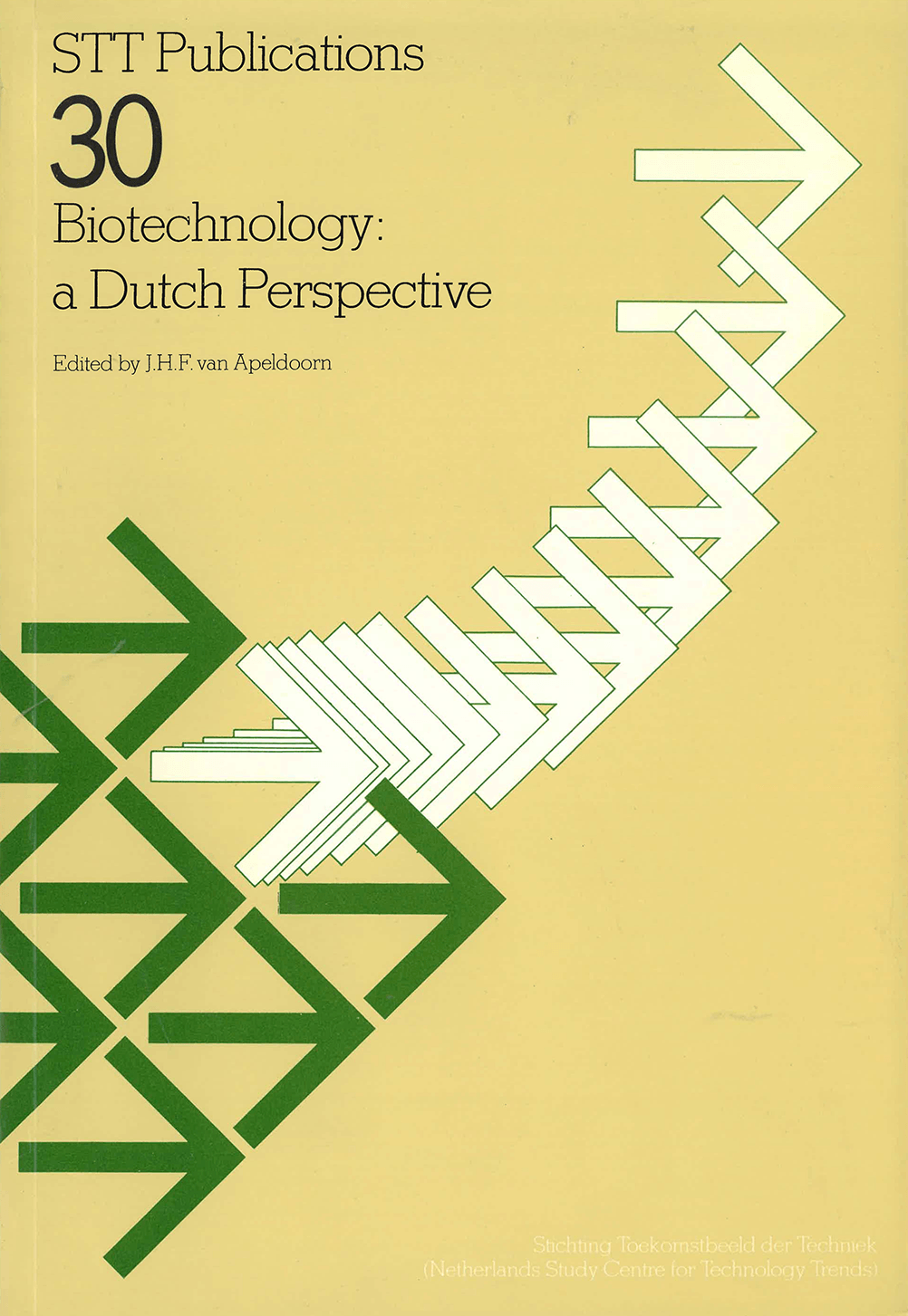Biotechnology: a Dutch perspective (EN)
This study is published in English because the Centre believes that the Dutch case can hold valuable lessons and pointers for other industrialised countries.
Forword
In 1979, when the Netherlands Study Centre for Technology Trends began examining the field of biotechnology, there was already a growing body of literature on the subject from other countries. At that time, though, no systematic examination had yet been made of the potential importance of biotechnology for the Netherlands, nor of the obstacles in the way of its development. Such astudywasobviously needed. A thorough and coordinated analysis of the possibilities of biotechnology, covering the entire field of possible applications, is an invaluable tool for industry in assessing the prospects of innovation. In addition, it can assist the academic world to tailor research to future developments, and it is absolutely essential to the government in deciding on measures designed to stimulate developments.
Advances in the basic sciences transcendnational boundaries, so any study which was of purely Outch interest would be invalidated on the grounds of parochialism.
However, the combination of a thorough knowledge of the basic sciences and considerable industrial expertise in various biotechnological applications places the Netherlands in a special position.
The Netherlands Study Centre for Technology Trends realises that biotechnology is poised on the threshold of a period of rapid development and expansion, but at this stage it is difficult to foresee how the various sectors of society will be affected by these developments over the coming decades.
Recent Dutch publications on the subject have concentrated on government policy, or on one particular aspect of biotechnology. The aim of the present study is to present an integral picture of the PtOspe'cts for biotechnology in all sectors, and of the social factors which will interact with this new field to determine the future course of applied biotechnology.
The study is published in English because the Centre believes that the Dutch case can hold valuable lessons and pointers for other industrialised countries. The report will also serve as the keynote paper for the symposium on biotechnologyon May 20,1981, which is being organised by the Centre.
We are confident that the report and the symposium will contribute to a wider appreciation of the potentialof biotechnology and of the challenge it poses our society.
The Netherlands Study Centre for Technology Trends is greatly indebted to all who have worked on this study.
Dr A.E. Pannenborg
Chairman of the Board
Netherlands Study Centre for Technology Trends
Omslag van de publicatie
Met dank aan Delft University Press
